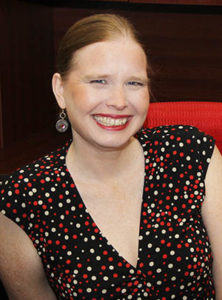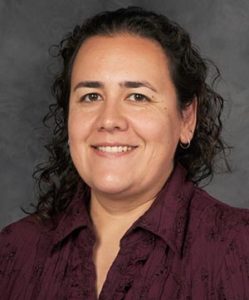Four former students now have another success story to tell as they received a very important certification from the only forensic entomology certification organizations in North America.
Drs. Micah Flores, Adrienne Brundage, Michelle Sanford, and Jonathan Cammack were given the high honors by receiving their Member certifications from the American Board of Forensic Entomology in August 2013.
The Member certification helps validate the expertise of the individual with identification, processing, analyzing and interpretation of forensically important arthropod evidence associated with human remains, said Dr. Jeff Tomberlin, Assistant Professor of Entomology and the AFBE’s diplomat and vice chair. In most cases, such experts are asked to assist with death investigations where decomposing human remains have been discovered.
Tomberlin said that there are only 17 individuals that are board certified in forensic entomology throughout North America. This low number is partly due to the rigorous standards associated with the field and the degree of difficulty with the examination.
“This accomplishment by these former students should be applauded as they successfully passed an exam that entails a written and laboratory practicum that requires approximately 12 hours to complete,” Tomberlin said. “Many individuals are not successful in passing the exam and our former students doing so demonstrates their hard work, dedication and great level of training received through part of their education that occurred in affiliation with Texas A&M University.”
Micah Flores, who recently completed his PhD in the laboratory
of Dr. Jeff Tomberlin, heard about the certification from Dr. Jimmy Olson’s forensic entomology course when he was an undergraduate. Flores said the certification provide the credentials enabling him to train law enforcement personnel about forensic entomology, as well as continuing his research on blow flies which are the primary insects that colonize dead bodies.
“I feel that anyone assisting with cases should be board certified in order to have uniform methods used for estimating the time of colonization and inferring a minimum postmortem interval (time of death) and to help shape standard operating procedures for future forensic entomologists,” he said.
Flores currently is working as a Research Entomologist at the Walter Reed Army Institute of Research.
Brundage is a former student from the class of 2011 and was also mentored by Tomberlin and is currently employed as a lecturer in the Department of Entomology at Texas A&M University.
“This is awesome,” she said. “I wouldn’t have been able to do what I am doing without that education and, especially with input from Dr. Tomberlin.”
Brundage is planning on using the certification to help her with teaching higher education, as well as assisting with casework.
Sanford, who received her PhD in Dr. Tomberlin’s lab at Texas A&M University in 2010, currently works as a forensic entomologist with the Harris County Institute of Forensic Sciences in Houston. She is the first forensic entomologist in the nation to be employed full time in a medical examiner/coroner’s setting and said the education she received has helped her tremendously.
“The breadth of medical and forensic entomology training I received at Texas A&M helped to prepare me for the wide variety of insect-related cases that are referred to me in the medical examiner’s office,” she said.
Sanford was very excited about being certified and loved the fact that it will help her with her career.
“I am enthusiastic about becoming board certified,” she said. “It is the start of being capable of providing meaningful contributions to the field and helping to make entomology standards and practices even more valuable to existing practices and analyses currently used in medicolegal death investigations.”
Cammack completed his undergraduate degree in Entomology in 2009. He pursued his M.S. in Entomology at Clemson University where he was co-advised by Drs. Peter Adler and Jeff Tomberlin. He heard about the certification after speaking to some colleagues at a previous North American Forensic Entomology Conference. He feels that certification is a very important part of his professional life.
“Becoming certified is a culmination of many years of hard work, and I am proud to now be a member of the ABFE,” he said. “This certification shows that other professionals in the field feel that I am knowledgeable on the subject of forensic entomology, and that professionally, I am a benefit to both the field and to individuals seeking assistance with evidence analysis/case work.”
Cammack currently works as a research associate in Dr. Wes Watson’s lab in the Department of Entomology at North Carolina State University. He said that the certification, along with his education at A&M and at Clemson has helped him tremendously with his career path.
All four Members will become eligible for the Diplomate rank within 5 years.



